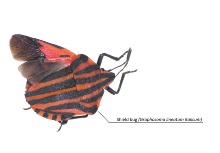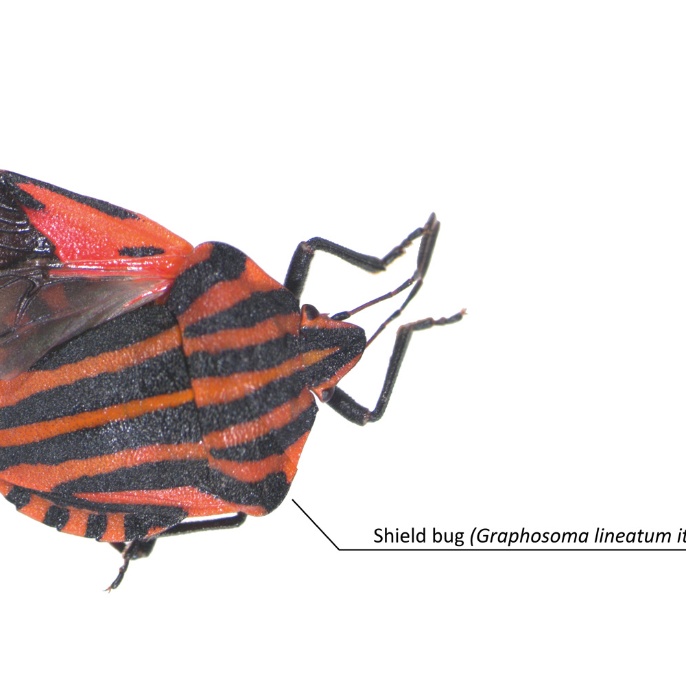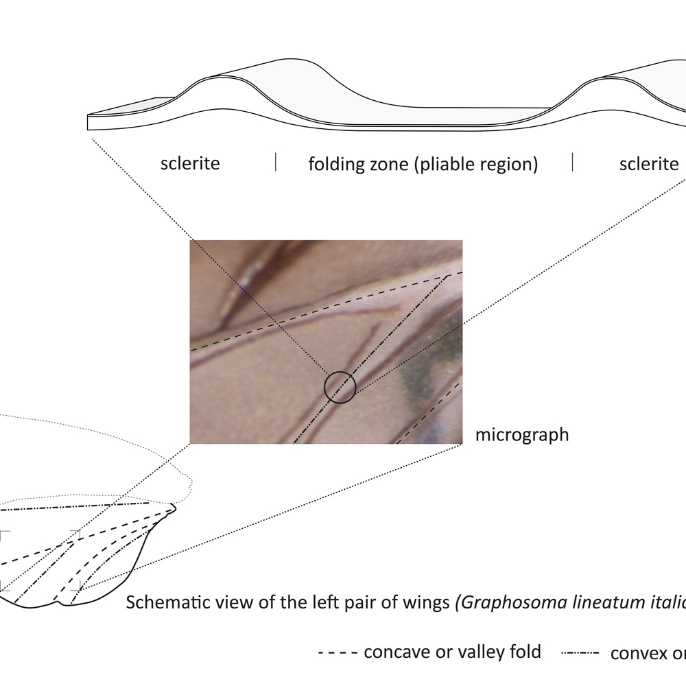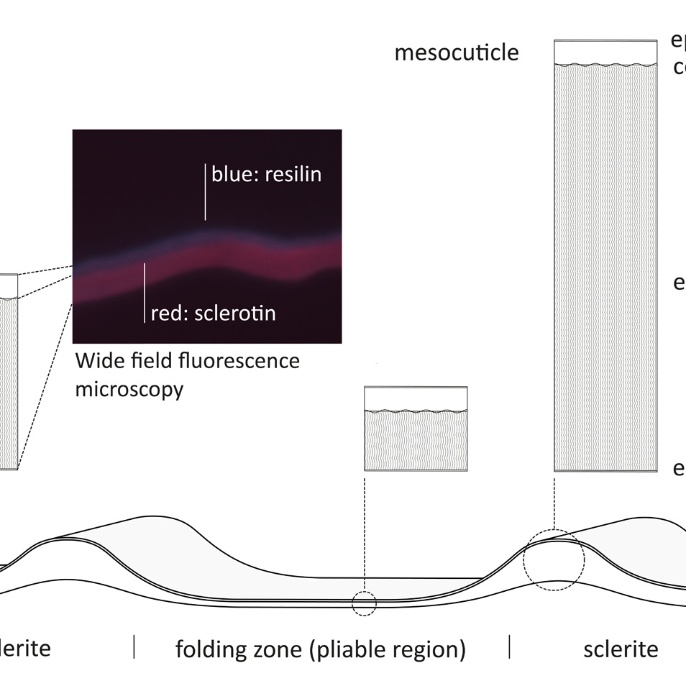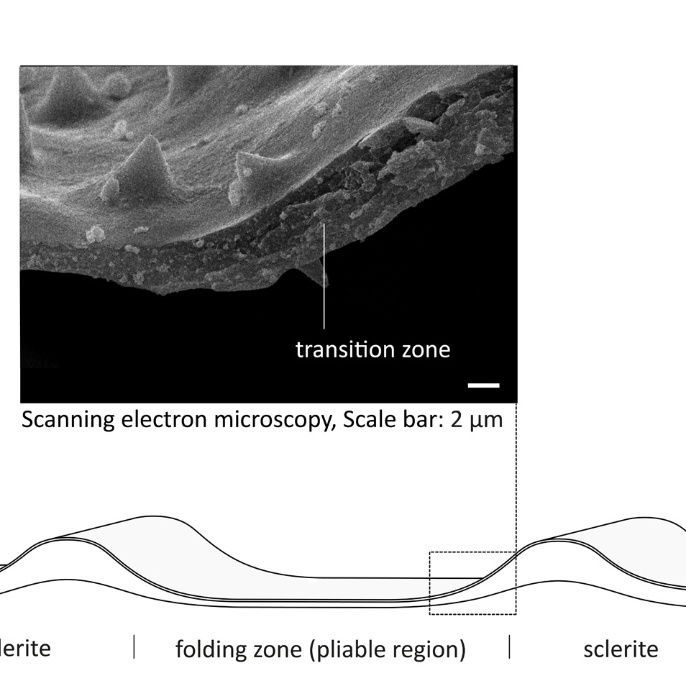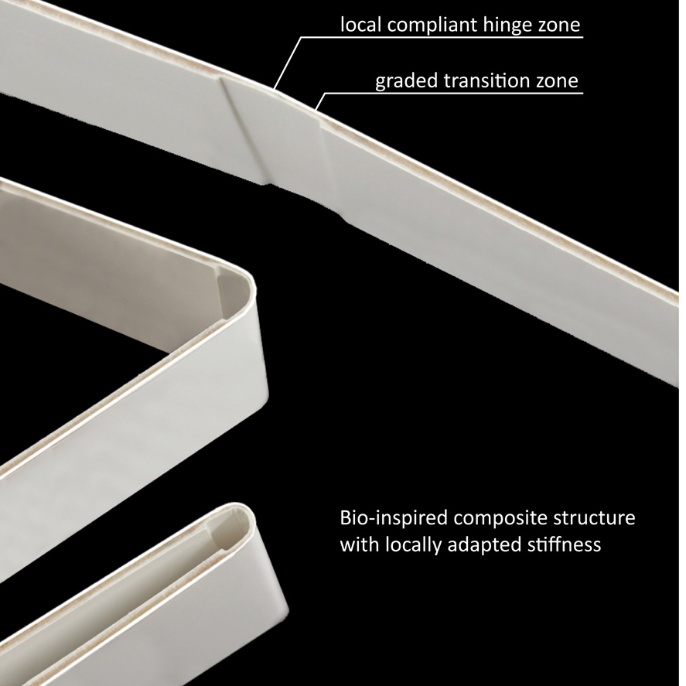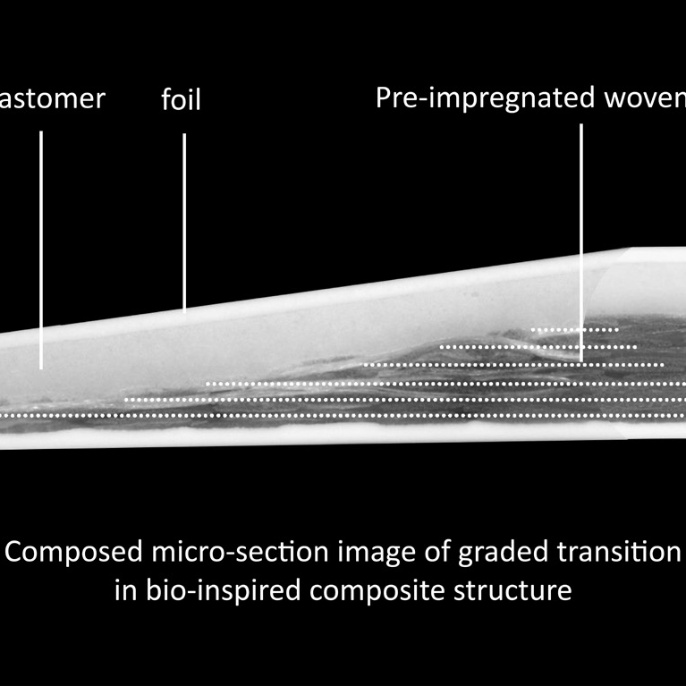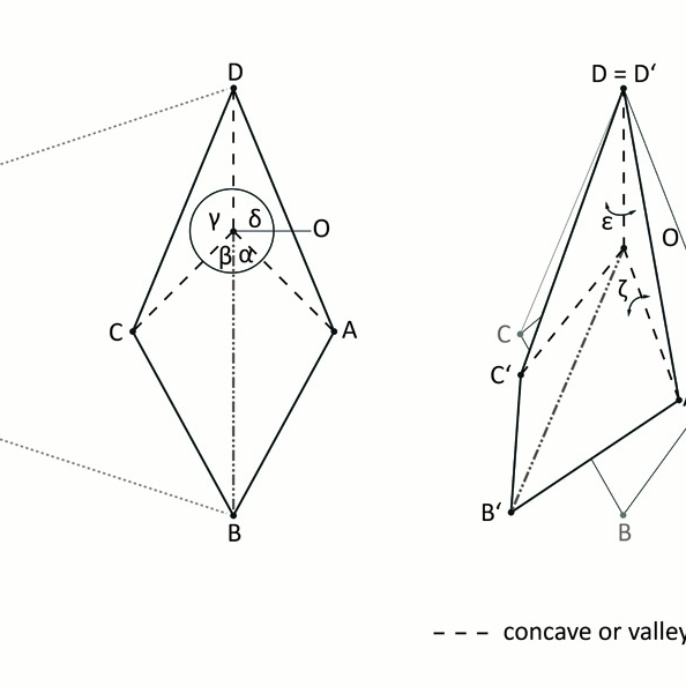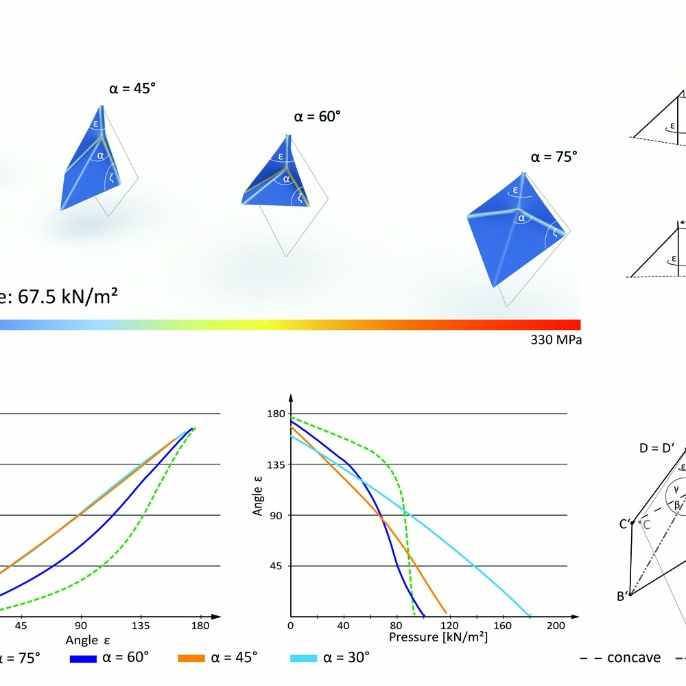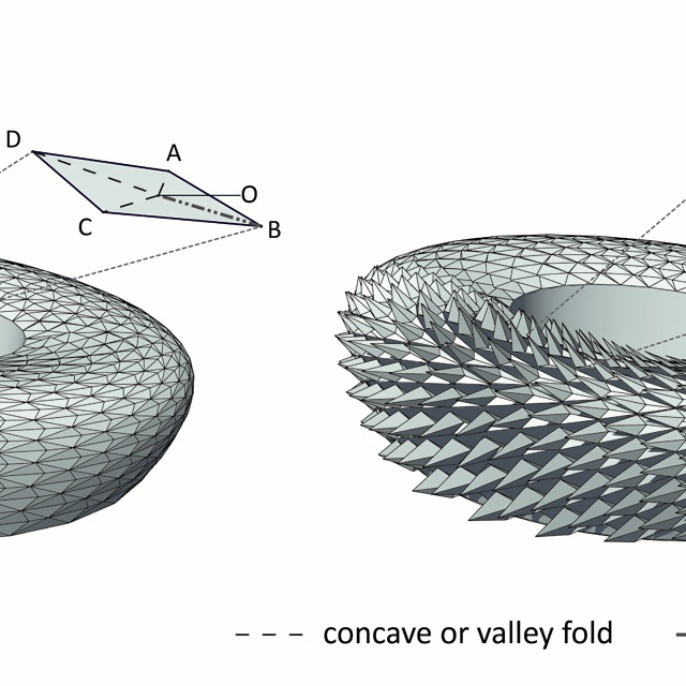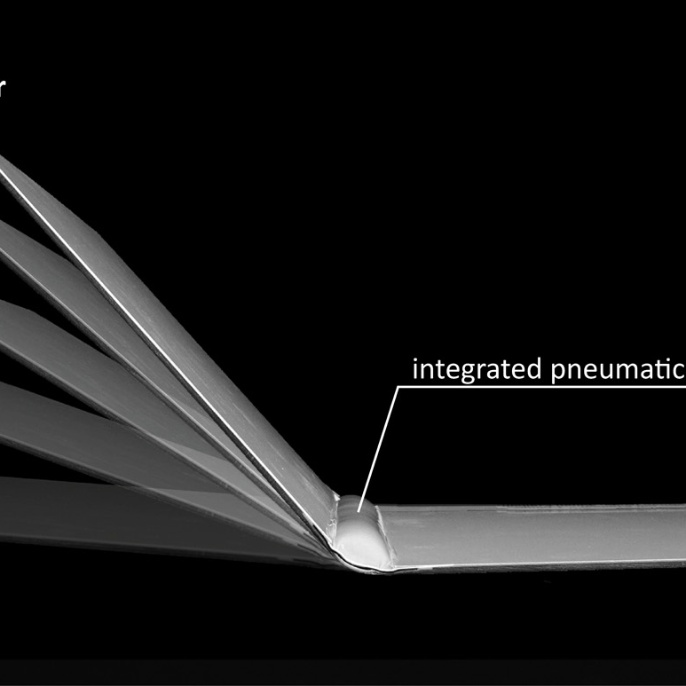Funding
Baden-Württemberg foundation
Funding period
01.01.2015- 31.12.2017
Hingeless shading systems inspired by nature are increasingly the focus of architectural research. In contrast to traditional systems, these compliant mechanisms can reduce the amount of maintenance-intensive parts and can easily be adapted to irregular, doubly curved, facade geometries.
Previous mechanisms rely merely on the reversible material deformation of composite structures with almost homogeneous material properties. This leads to large actuation forces and an inherent conflict between the requirements of movement and the capacity to carry external loads.
To enhance the performance of such systems, this research project is directed at natural mechanisms with concentrated compliance and distinct hinge zones with high load-bearing capacity.
In order to learn about means for gearing local flexibility by fine-tuning the composite structure and develop new strategies for efficient robust sun-shading systems this project focuses on the hierarchical structure of the wing cuticle of the shield bug (Graphosoma lineatum italicum), motion principles of compact foldable hindwings of insects and bio-inspired integrated pneumatic actuation.
Team
Institute of Building Structures and Structural Design (ITKE), University of Stuttgart
Prof. Dr.-Ing. Jan Knippers, Gundula Schieber, Anja Mader, Axel Körner
Institute for Textile Technology, Fiber Based Materials and Textile Machinery (ITFT), University of Stuttgart
Prof. Dr.-Ing. Götz T. Gresser, Larissa Born
German Institutes for Textile and Fiber Research (DITF), Denkendorf
Prof. Dr.-Ing. Markus Milwich, Lena Müller
Institute of Evolution and Ecology (EvE), University of Tübingen
Prof. Dr. Oliver Betz, Dr. Paavo Bergmann


